You’ve seen the t-shirts, now read the blog!

BTW: This post is not sponsored – I just fell victim to a series of (surprisingly effective??) Instagram ads. On a related note, I’m also thinking about buying everybody I know Detox Tea for Christmas.

You know what they say:

Speaking of hookers cousins you haven’t seen in a really long time, the holidays are right around the corner!
 Yep, the time for Christmas cheer is upon us – which, if you live in America, means one thing:
Yep, the time for Christmas cheer is upon us – which, if you live in America, means one thing: peace love joy STRESS!!
According to the American Psychological Association (APA), people in the United States are more likely to feel their stress levels increase rather than decrease during the holidays. In a survey of 2,280 people, Healthline found that 47% of holiday stress comes from finances (otherwise known as The Mo’ Money, Mo’ Problems Effect):
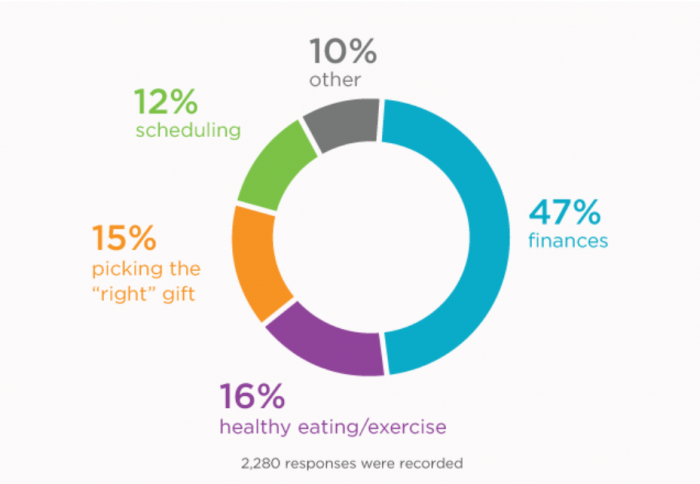
Source: Healthline (2015)
Not surprisingly, shoppers really aren’t looking forward to those long lines. Consumer Reports polled 2,000 people and found 57% were “dreading” crowds and lines. (Apparently “aggressive or thoughtless driving in store parking lots” is a sore subject too, clocking in at a 54% dread level.)
But stress doesn’t stop at the mall.
The APA actually found that time is more stressful than money:
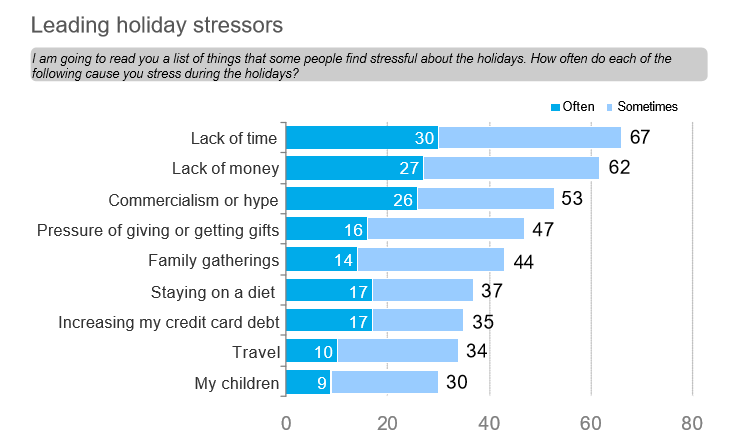
Source: APA (2006)
Either way, it’s clear that time and money are big ticket items. Throw in a little family drama and you’ve got a recipe for some serious stress!
So what’s a health-loving elf to do?

Have no fear! Your holistic health survival kit is here!
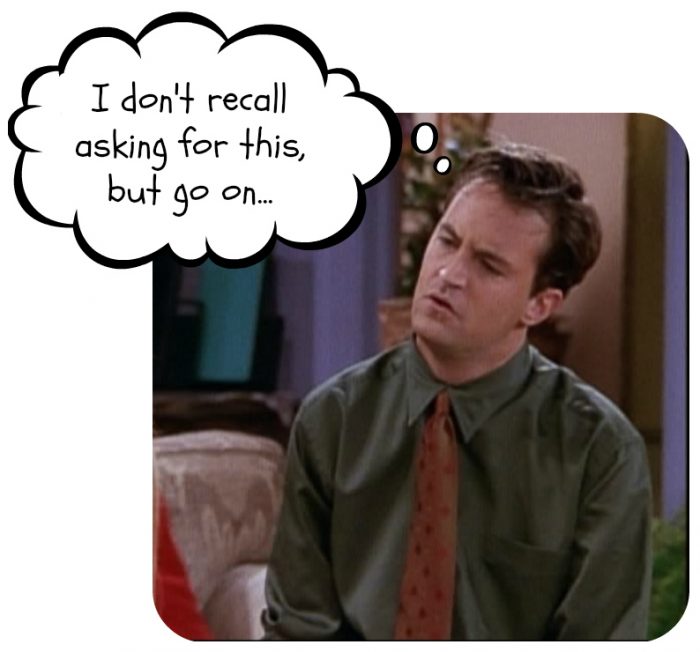
Tips for minimizing Christmas stress
 Realize the grass isn’t greener on the other side.
Realize the grass isn’t greener on the other side.
Believe it or not, only 10% of our happiness depends on circumstances – and that INCLUDES money.
Researchers chalk the relatively small effect up to ‘hedonic adaption’ or the fact that we adapt super fast to new circumstances and life events.
In fact, a 1978 study showed that, after only one year, lottery winners were no happier than people who didn’t win the lottery. Likewise, as noted in the American Psychologist: While Americans’ personal income has more than doubled in the past 50 years, their happiness levels have remained the same.

So if you’re still waiting on that Christmas bonus, just take a deep breath and let it go! Turns out it’s not that important after all!
 Focus on faith not finances.
Focus on faith not finances.
The Bible tells us:
Do not lay up for yourselves treasures on earth, where moth and rust destroy and where thieves break in and steal; but lay up for yourselves treasures in heaven, where neither moth nor rust destroys and where thieves do not break in and steal (Matthew 6:19-20).
And yet, it’s super easy to lose sight of what’s important. Discussing America’s financial crisis, Dr. David Palmiter of the APA notes: “Money is a safety net, as in: I may not be able to count on people, but I can count on my cash.’ Now the thinking’s gone to: ‘There’s nothing between me and the abyss'”. (Ahhh! LOL)
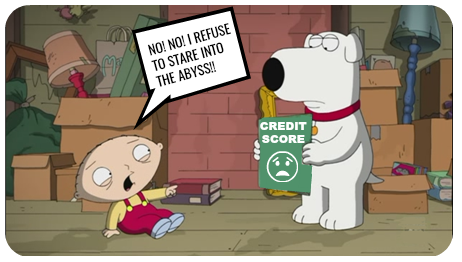
Look, I’m not saying money doesn’t provide a sense of security – but at the end of the day, there’s only one thing we can truly count on, and that’s GOD. So if you’re looking for something to hold onto this hectic holiday season, remember:
JOHN 14:27: Peace I leave with you, My peace I give to you; not as the world gives do I give to you. Let not your heart be troubled, neither let it be afraid. :)
 Stay in the moment.
Stay in the moment.
Thirty-one percent of Americans are worried they won’t get enough time off from work to enjoy the holidays, while 67% are just freaking out about time general (when to shop?! when to party?!) – but the reality is: The best parts are muddled in between!
You know what they say:
Life is what happens when you’re busy making other plans…

Look, I know it’s cheesy but those little quotes have some serious science behind them!
A 2010 study found that people spend nearly half their time (46.7%) thinking about something besides what they’re actually doing. However, happiness lives in the now – the same study concluded that mind-wandering (even when it’s about pleasant stuff*) makes people less happy!
*Editor’s Note: Technically, the study found that pleasant mind-wandering tends to make people “no happier than thinking about their current activity”, while neutral and negative thoughts make them considerably more unhappy. However, the study has since expanded and its author, Harvard psychologist Matt Killingsworth, has suggested in subsequent articles/talks that even when drifting off to something pleasant, people are still “slightly less happy than when they’re not mind-wandering at all.”
Moral of the story?
Don’t ruin the time you do have worrying about the time you don’t.
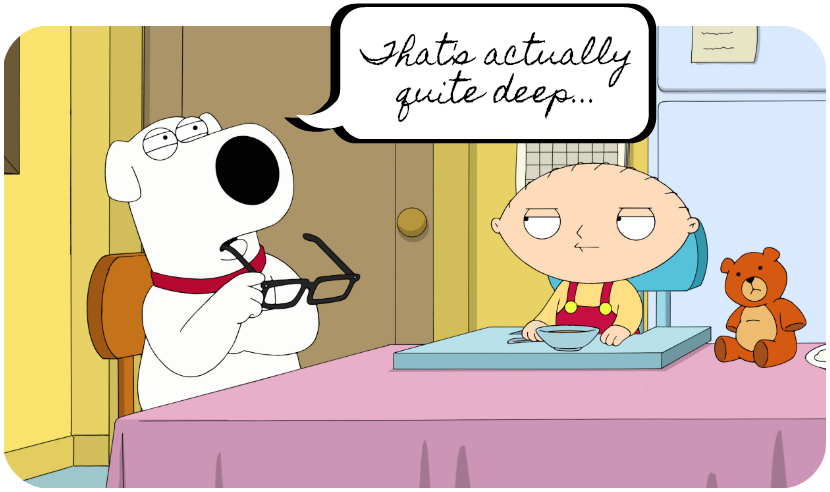
And there you have it! A super quick sanity checklist to hopefully keep you in the Thanksgiving/Christmas spirit (and out of jail therapy) this holiday season!
REFERENCES
Brickman, P., Coates, D. & Janoff-Bulman, R. (1978). Lottery winners and accident victims: Is happiness relative? Journal of Personality and Social Psychology, 36(8): 917-927.
Cole, L.L. (22 December 2016). What do Americans dread most about the holidays? Consumer Reports.
Greenberg Quinlan Rosner (2006). Holiday Stress. American Psychological Association.
Healthline (2015). Big meals, tight schedules, and wallets: What stresses us most at the holidays.
Killingsworth, M. (2013 July 16). Does mind-wandering make you unhappy? Greater Good Magazine. Greater Good Science Center at UC Berkeley.
Killingsworth, M.A. & Gilbert, D.T. (2010). A wandering mind is an unhappy mind. Science, 330(6006): 932.
Lyubomirsky, S., Sheldon, K.M. & Schkade, D. (2005). Pursuing happiness: The architecture of sustainable change. Review of General Psychology, 9(2): 111-131.
Myers, D. G. (2000). The funds, friends, and faith of happy people. American Psychologist, 55(1): 56–67.
Palmer, N. (2009 March). Five ways to cope with money stress. O, The Oprah Magazine.
PS. I swear I’m not trying to sell you cute quote apparel, but if you liked that “good time/not a long time” pic, I borrowed the t-shirt design from BetterThanRealLife ;)


Leave a Reply